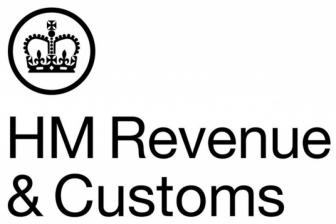With the self assessment deadline less than a week away, many individuals, including self-employed agents, will be pleased to learn that self-assessment customers will not receive a penalty for their late online tax return if they file by 28 February.
To be clear, anyone who cannot file their return by the 31 January deadline will not receive a late filing penalty if they file online by 28 February.
But HMRC is encouraging anyone who has not yet filed their tax return to do so by 31 January, if possible.
HMRC’s chief executive Jim Harra said: “We want to encourage as many people as possible to file their return on time, so we can calculate their tax bill and help them if they can’t pay it straight away.
“But we recognise the immense pressure that many people are facing in these unprecedented times and it has become increasingly clear that some people will not be able to file their return by 31 January.
“Not charging late filing penalties for late online tax returns submitted in February will give them the breathing space they need to complete and file their returns, without worrying about receiving a penalty.
“We can reasonably assume most of these people will have a valid reason for filing late, caused by the pandemic.”
Normally, late filing penalties are applied to all returns filed after the 31 January deadline. Those penalties are cancelled if the customer has a reasonable excuse for filing late. However, this year HMRC is not issuing late filing penalties for a month to help taxpayers and agents who are unable to meet the deadline.
Late filing penalties will not be issued for online tax returns received by 28 February. However, there is a catch – interest will be charged from 1 February on any outstanding liabilities.

Nimesh Shah, CEO at Blick Rothenberg, said: “It’s amazing that HMRC have decided, with less than a week to go before people needed to file their tax return, to extend the deadline by a month. This decision should have been made much earlier and will have caused certain taxpayer groups significant concern.”
He added: “However, the sting in the tail is that the 31 January deadline is important for all other purposes, including making your tax payment. Taxpayers will be left with a surprise in relation to interest and surcharges for late payment of tax if they wrongly believe the extension also applies to paying their tax. HMRC will still want the tax and any late paid amounts will attract daily interest at 2.6% and a 5% surcharge if not paid by 2 March.
“In addition, even though the £100 late filing penalty will not apply, a tax return filed after 31 January is deemed to be ‘late’ for all other purposes – this can mean that the window HMRC has to raise an enquiry is automatically extended. There may also be certain claims and elections that need to be submitted by 31 January (usually done via the tax return), and taxpayers need to be clear on the wider implications of filing after 31 January – they may not receive a £100 late filing penalty but there could be other consequences in relation to their tax affairs.”



Always amazes me how many landlords scramble around at the last minute (I had 2 yesterday) to get their tax returns done. Those figures have been available for 9 months….why? I make sure that I do my return by the end of May to avoid the panic!
You must be logged in to like or dislike this comments.
Click to login
Don't have an account? Click here to register
it amazes me how many landlords do not complete an SA105 L&P because HMRC are unaware they are landlords.
What amazes me further is that the portals are not considered data holders for the purposes of schedule23 of the Finance Act. If they were the whole process of identifying the UTR of all landlords and companies due to file PRS tax returns would be automatic
You must be logged in to like or dislike this comments.
Click to login
Don't have an account? Click here to register